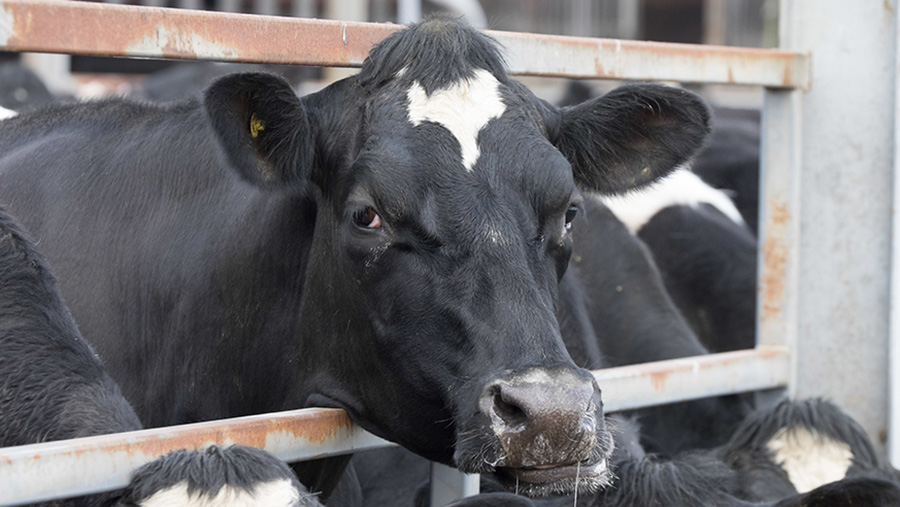Dairy ‘time bomb’ as youngsters shun drinking milk
 © Tim Scrivener
© Tim Scrivener The UK dairy industry is facing a “demographic time bomb” unless young people increase their consumption of milk and other dairy products.
David Dobbin, chief executive of dairy co-operative United Dairy Farmers, said producers faced a huge drop in demand as younger generations drink less milk than their parents and grandparents did.
Speaking at the European Federation of Animal Science conference in Belfast this week, Mr Dobbin said the industry needed to find ways to make dairy products more appealing to the next generation of shoppers.
See also: First Milk lifts farmgate price for second time in a week
“In the past children consumed a lot of dairy, but today’s children and teens don’t necessarily eat it,” he told delegates.
“It’s a demographic time bomb. If we don’t address the problem now, then we are facing a fall-off in demand for dairy.”
In a bid to tackle the problem, the Global Dairy Platform – an organisation working to promote the dairy industry across the world – was about to launch a “three-a-day” campaign to teach people about the nutritional benefits of consuming more dairy products, Mr Dobbin said.
It’s a demographic time bomb. If we don’t address the problem now, then we are facing a fall-off in demand for dairy David Dobbin, United Dairy Farmers
“The problem we face is that we have some health professionals who see dairy as the enemy,” he added.
“People wrongly assume that dairy is bad for them because of its fat content, without considering the other nutritional benefits it offers.
“We have to fight that.
“If we can win the hearts and minds for consumers then it will create life-long habits for dairy consumption.”
Productivity increase
Despite concerns over the potential drop in demand, Mr Dobbin told the conference that UK producers had the potential to increase productivity considerably over the coming years.
“Currently improvement rates are 1.4% in the UK and 2% in Northern Ireland, but with genetic improvement alone there’s the possibility to increase production by 2.5% a year,” he said.
“I definitely think there’s the potential for a 3% increase in productivity for the next decade at least.”
Part of the challenge for producers was to be able to ride out the periods of price volatility so they could make investments in their systems and drive innovation.
“One option is through financial instruments, but we should also look at the role of contacts to protect farmers and ensure prices are consistent so that we can help create more stability.
“The major issue for the dairy sector is improving sustainability,” he added.
“We need to be more market-led, we need to be better – not just bigger – and we need to be more competitive in Europe.”
